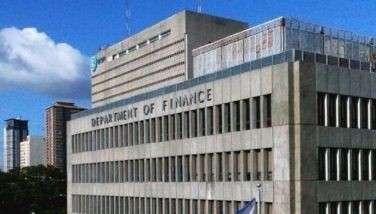Stimulus package

The generally accepted author of the theory of using government spending to pump-prime the economy is John Maynard Keynes (1883-1946). It is Keynes that redefined capitalism to allow a larger dose of government participation without venturing into state planning and ownership. Thus, the present shape of the advanced economies at this time “After Meltdown” (AM) with a large component of government credit, even ownership of banks, and expected spending to create jobs and demand is a structure Keynes would heartily endorse.
In the definitive biography of Keynes by Robert Sidlesky, a historian who had to learn economics to bring this original thinker and his ideas to life, the subject is portrayed as an activist economist after a stint in Treasury during the First World War. His private life of homosexual dalliances in his youth and eventual settling down to a comfortable marriage (no kids) with ballerina Lydia Lopokova as well as his currency and stock market speculation, magazine publishing, academe (Cambridge) and membership in the literary and artistic Bloomsbury Group (after the district where these intellectuals lived) shows a theorist very much at home with the world. Keynes was fully engaged with disseminating his ideas in journals and books as well as memorandums to the British government, and eventually the American counterparts.
It was Keynes too who dominated the Bretton Woods discussions after WWII which created the IMF and set the basis for a stable currency exchange system, as well as pressuring Britain and then the rest of the world to move the monetary standard away from the “cross of gold” and into the modern fiat money.
Now, Keynes is again the rage, albeit not always credited as the author of the merits of government spending, even with money it does not have (deficit spending) to wake up the sleeping giant of the economy. In his time, Keynes’ book, “General Theory of Employment, Interest, and Money” pushed economic planners and central bankers towards a bigger role for government in the demand side of the economy. It is this seminal work that reversed the then-reigning school of Adam Smith whose book, “Wealth of Nations” advocated an unregulated market, guided by an “Invisible Hand” (no government regulation) which somehow allowed individual greed working without any guidance to set the capitalist machine humming in search of the common good. Now, we all know what unfettered greed of individuals with fat bonuses can do and how much havoc they can wreak. A “small government” approach to the market economy can have unintended consequences too.
Adam Smith’s “laissez faire” which is French for “let the kids play with guns” has sought to allow the market, or the few entities moving the market to allocate resources and rake in the profits. It was this deregulated market then that created the bubble that burst last year and caused the loss of trillions of dollars of lost wealth.
Clearly, the pendulum of sentiment has swung back to Keynes.
Okay, enough of Economics 201 — let’s get on with the stimulus package which is a form of “demand side” economics. A stimulus package is supposed to perk up demand and allow goods to again be bought and produced. The tax breaks put money in the pockets of consumers leading to higher levels of spending, increasing demand for televisions and cars so that the manufacturers (on the supply side) can increase production and employ those on extended leaves and bring down unemployment. The public works program involving spending in education, health care, and infrastructure comprises the public demand side. Thus both consumer spending (from additional funds from tax cuts) and government (public works) combine to bring up GDP and create employment.
As always, the best way to understand macroeconomics is to look at it from the point of view of the individual, which economists insist on calling “the consumer”. What is a stimulus supposed to do? It is easy to understand a stimulus in bodily terms, as in a “physical stimulus”. The word “stimulus” (Latin for “goad” or “spur”) is simply defined as something causing or perceived to be causing a response. Thus a girl in a topless bikini on a beach (the stimulus) is bound to elicit a response from an observant male on the same beach and within sight. In this case, the male may respond by putting on very dark glasses so as not to seem ogling the marine life, and maybe get a face towel to wipe salivary drips from the corners of his mouth. Of course, the same stimulus can get a different response from another male, also in the vicinity who may continue reading the like of John Maynard Keynes.
In order to work, the economic package (we are now back to the fiscal stimulus) should lead to consumer behavior that brings up GDP. Consumers with extra money are expected to use their new wealth to buy something, anything.
When the added income from the tax break comes, the consumer is expected to spend it. The usual back-to-basics admonition to be frugal and save will not allow the stimulus to work as it should. Private virtue can be a public vice. The advocates of “shop till you drop” are leading the charge here.
Direct government spending in alternative energy or repair of roads and broadband capacity go into the system right away and create jobs. Money from any stimulus package has to be put to work to improve monetary velocity and increase the level of GDP.
It’s time to go back to the market and do our private bit of stimulation.
If our friend Mr. P gives a new definition of liquidity as wetting one’s pants when shown our marked-to-market assets’ new value, maybe stimulus needs to be redefined too in the other direction. It has to be jolted out of its physical connotation of giving rise to certain anatomical parts. A motel manager understands stimulus in terms of quick results and a higher turnover rate.
Stimulus is now an economic term, Class. Let’s get… fiscal.
- Latest
- Trending
































